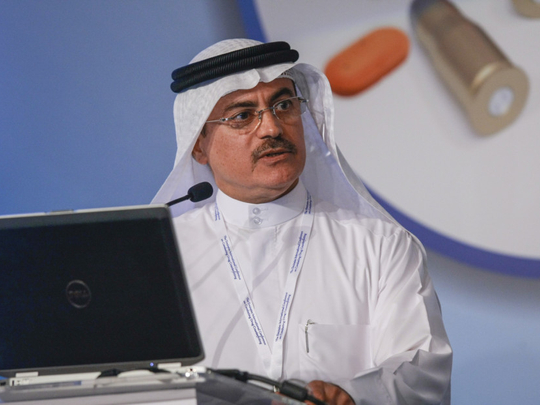
Dubai: The Ministry of Health (MOH) has warned the public against buying medicines and food supplements from online pharmacies and outlets, saying over 95 per cent of them are illegal.
Speaking on the sidelines of the Emirates International Conference on Combating Drug Counterfeiting in Dubai on April 20, Dr Amin Hussain Al Amiri, assistant undersecretary for public health policy and licensing, said: “As per the World Health Organisation, over 95 per cent of such online companies are illegal. Therefore, we recommend that you buy medicines and food supplements from authorised pharmacies in the UAE, and not on the internet.”
He said the majority of online pharmacies are not registered and many of the drugs and food supplements sold are fake. He said these drugs address a wide range of health issues, ranging from hypertension and diabetes to obesity and rectal dysfunction and the public should be aware of the dangers of using counterfeit drugs.
He said counterfeit products come in different forms. They are deliberately and fraudulently mislabelled with respect to identity and/or source and can apply to both branded and generic products. They may contain wrong ingredients, insufficient or no active ingredients and have fake packaging.”
‘Candidates’ for counterfeiting
He said: “Other forms include herbal preparations fraudulently mixed with chemical compounds, re-labelled drugs with the intention of extending the shelf life, animal drugs not approved for human use and products which have been withdrawn from the market (like sibutramine).”
He said the public should be especially careful with regard to fast-moving and well-known brands and medicines that are easily manufactured and are available over the counter as they are the most common “candidates for counterfeiting”.
Dr Al Amiri said MoH stepped up inspections of pharmacies and warehouses and drug control laboratories analysed 68 counterfeit products in 2014. As many as 75 alerts were issued against counterfeit products during the year,.
Michael Deats from the WHO’s Safety and Vigilance wing, gave an overview of the combat against substandard, spurious, falsely labelled, falsified and counterfeit medical products and how best they could be prevented from entering the supply chain.
Bjorn Douglas McClintock, criminal intelligence analyst from Interpol, said Interpol’s global and regional operations between 2010-14 had led to the arrests of 1,400 people, the suspension of 57,000 illicit pharmacies and seizure of 500 tonnes and 30.3 million units of illicit medicines.
Dr Al Amiri said only 2.49 per cent of the counterfeit products seized in the European Union in 2013 came from Arab countries.













